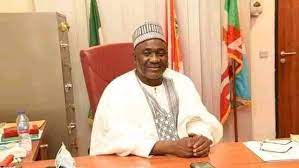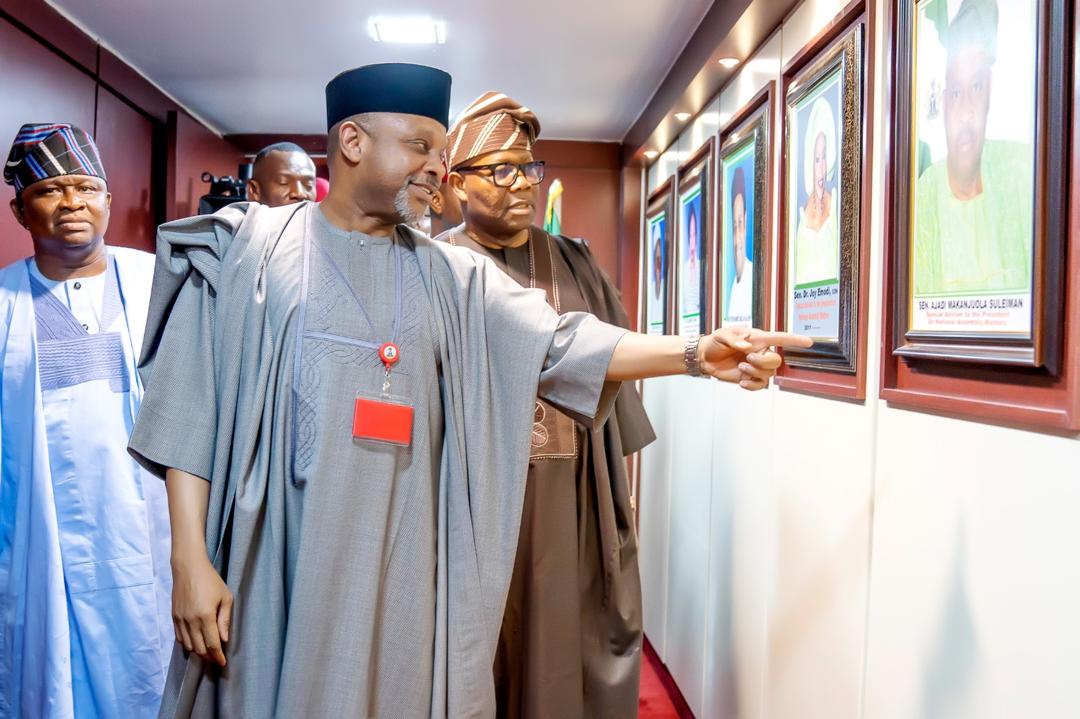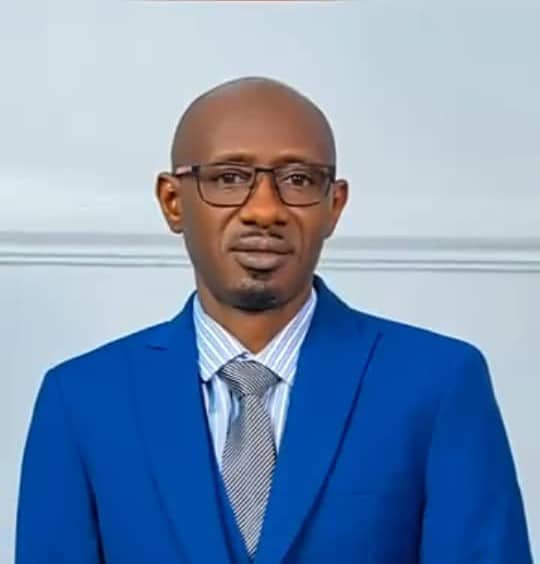News
Subsidy: Marketers demand transparency as ex-depot cost exceeds pump price

…FG insisting on current petrol price means subsidy is back – Marketers

…say subsidy inevitable to maintain current pump price at N568-N617

Despite announcing the removal of subsidy on petrol and more than 400 per cent subsequent rise in the price, the Federal Government may be secretly paying an unspecified amount to marketers of the product to maintain the current pump price.
President Bola Tinubu had during his inaugural speech on Monday, May 29, 2023, announced that the era of subsidy payment on Premium Motor Spirit, otherwise known as petrol, was over. This announcement led to an instant rise in the pump price of the commodity from N189 to about N500.
Presently, petrol sells for between N568 and N617 in different parts of the country due to what government officials and the NNPC Limited described as foreign exchange fluctuations as the product is exclusively being imported.
Saturday PUNCH gathered that the ex-depot price of petrol stood at N580 per litre in Lagos on Thursday and that after adding the cost of conveying it to filling stations and the marketers’ profit margin, it ought to sell for between N620 and N630 per litre. The difference, however, represents the subsidy that the government is surreptitiously bearing despite the fact that there is no budget for that.
It was learnt that jolted by the negative reactions that had been trailing its economic policies, including the astronomical surge in the cost of living occasioned by the removal of fuel subsidy and the floating of the naira, coupled with a possible backlash if the pump price of petrol rose further, the Tinubu administration decided to peg the price at the current rates and instead opted to accommodate some form of subsidy.
“Our ex-depot price as of Monday was N575 and by Thursday, it had jumped to N580. Ideally, we should be selling above N600, say N620 per litre in Lagos, but the Federal Government is saying we can’t increase the pump price, so who pays the differential?
“The business is no longer profitable and that is why a lot of independent marketers are abandoning their filling stations and selling them to major marketers, which have the resources to absorb some of the unexpected volatility.
“Before subsidy removal, it used to cost a tanker about N5m to lift petrol from the depot, but now, the price has jumped to about N25m and the profit margin on that is just around N300,000. So, it is not an encouraging business at the moment.”
The marketers had said on Sunday that the price would rise to between N680/litre and N720/litre in the coming weeks should the dollar continue to trade at N950 in the parallel market.
They also hinted that dealers seeking to import PMS were being forced to put the plans on hold due to the scarcity of foreign exchange to import the commodity.
The warning came barely one week after the local currency crossed the N900/dollar ceiling, with the naira selling at over 945/dollar at the parallel market last Friday.
Oil dealers said the Central Bank of Nigeria’s Importers and Exporters official window for foreign exchange had remained illiquid and unable to provide the $25m to $30m required for the importation of PMS by dealers.
The marketers had in June projected that the pump price of petrol could rise above N700 per litre in the northern part of the country starting from July.
National Controller Operations, Independent Petroleum Marketers Association of Nigeria, Mike Osatuyi, had told The PUNCH that the price could rise to above N700 in the North once independent marketers started importing products.
He said while those living in the northern states could pay as much as N700 and above for one litre of petrol, those outside Lagos should expect to pay around N610, while Lagos residents would pay about N600 per litre.
“What I am seeing is around N600 and above, depending on the exchange rate, the current crude price at the international market and the landing cost. Those in Lagos will pay around N600, those outside Lagos around N600 plus, while those in the North will be paying anything from N700 and above,” he said.
Similarly, a former Chairman of the Major Oil Marketers Association of Nigeria and Chief Executive Officer/Chairman of 11 Plc, Tunji Oyebanji, said consumers should expect new pump prices close to that of diesel, and those of neighbouring African countries that also import petrol.
By coming out to declare that the pump price of petrol will not rise above the N617/litre approved cost, the Federal Government has indirectly reinstated fuel subsidy, oil marketers stated on Friday.
Dealers of the commodity also asked the Federal Government to come out clean with respect to fuel subsidy, instead of mandating oil marketers not to dispense the product above a stipulated band.
“Therefore, they will now say to marketers, don’t sell more than this price, which means they have reinstated fuel subsidy and will now send the Nigerian Midstream and Downstream Petroleum Regulatory Authority to monitor prices at filling stations.”
Commenting on the $3bn recently loan secured by NNPCL from Afrexim Bank, Kekeocha said, “If you bring forex and make it cheaper and bring products and now fix the price, it means you are going to monitor marketers, because you are going to make retailers to sell within a price band.
“Anybody who sells above it means he is going against the law; this is a reinstatement of subsidy.”
Also speaking on the issue, the Secretary, IPMAN, Abuja-Suleja, Mohammed Shuaibu, said the ex-depot price of PMS in Warri as of Friday was N585/litre, while that of diesel was N820/litre and aviation fuel was N800/litre.
Shuaibu stated, “These are the prices of the products at the depots and not at filling stations. The pump price for petrol, of course, should be around N600/litre in Warri and neighbouring states, but should be higher than that in Abuja and the northern states, because these locations are far from Warri.
“There are no functional depots in Abuja and the North because all the pipelines supplying products to the region have been vandalised. However, we know that if the NNPC should sell petrol based on the forex rates in Nigeria, the cost should be much higher.”
The spokesperson, NNPCL, Garba-Deen Muhammad, could not be reached for comments as he did not respond to calls and messages sent to his mobile phone.
“So, that analogy by the Presidency in stating that petrol is cheaper here is not entirely correct. This takes us to the importance of domestic refining, which will enable us to check the demand for dollars and importation of petroleum products.
“If we actually want full deregulation, there must be local production that will check the rise in dollar. For once the dollar is rising, there’s nothing you can do to stop the simultaneous rise in petrol price.
“If not, it means the Federal Government is subsidising petroleum products, which implies that subsidy has indirectly returned.”
Ukadike insisted that the pump price of petrol should be around N680 going by the prevalent exchange rate and the price of crude oil.
He said, “With a template of N554/litre landing or ex-depot cost at the time when one dollar was N750, if you analyse and work out the arithmetic, you will find out that the current pump price of PMS should be around N680/litre now that the dollar is hitting over N850/litre.
“So what we are experiencing now is quasi or semi subsidy, but the government may not want to admit it.”
The Chief Executive, Nigerian Midstream and Downstream Petroleum Regulatory Authority, Farouk Ahmed, had said that going forward, the market would dictate the pump price of PMS as the agency would no longer fix prices or release templates for petrol.
Meanwhile, the Chairman of IPMAN in Rivers State, Dr Joseph Obele, has said the Port Harcourt refinery will likely beat the December deadline for the completion of its turnaround maintenance and will soon be refining fuel for local consumption.
Obele said in an interview with Saturday PUNCH that the pace at which work was going on at the refinery had increased, adding that while on a visit to the site recently, he noticed that majority of the work, including the mechanical and civil aspects, had been completed.
The President had earlier assured Nigerians that the refinery would commence operation by December, but the IPMAN boss said the deadline would only be realistic if the Federal Government appropriately channelled funds into the project.
He stated, “Recently, we were at the site for an oversight function and we discovered that they had double the number of workers and they were working 24 hours round the clock at the Port Harcourt refinery. Before now, the work was going at a snail’s speed, but now I can tell you that the work is going at horse speed.
“It is encouraging because they are done with the mechanical and civil jobs, and what is remaining are electrical installations and technical jobs, which they are doing now. Plus or minus, that plant will be operational by November if the government pumps in more funds. We the stakeholders have posited that the over N1tn saved from subsidy removal should be channelled into doubling the workforce as it will hasten the work.”
Natural gas committee
To reduce the impact of fuel subsidy removal on Nigerians, the President has approved the establishment of the Presidential Compressed Natural Gas Initiative.
“Deliver training and technology transfer to support the after-sales services and maintenance sub-industry to create sustainable jobs.
“President Tinubu’s focus on assembling CNG-enabled vehicles within the country will stimulate economic growth, create employment opportunities, and bolster the nation’s automotive manufacturing capabilities.”
Credit: Punch

News
Eid-el-Fitr: Echocho congratulates Muslim community

Senator representing Kogi East Senatorial District, Jibrin Isah Echocho, has congratulated Muslim faithful for the successful completion of this year Ramadan fast, urging them to celebrate the Sallah in love, and unity across our communities.

Echocho in a statement madeavailable to CAPITALPOST in Lokoja o Sunday, described the Ramadan period as stressful, but deserving, because it is the only period for spiritual reflection on abstinence from immorality, sincere sacrifice and supplications to Allah.

He added that, Ramadan symbolises Allah’s way of teaching humanity on virtuous living, where people keep away from all forms of comfort to appreciate what the less privileged experience and deprivation they suffers daily.
He task Muslims to extend the lessons of Ramadan to the way we live with our neighbours.
“Let’s seek peace at all times and promote unity of purpose in our society” the Lawmaker demanded.
“May the celebration brings sustainable peace to our homes, my district, Kogi State and Nigeria, he concluded.

News
Akpabio pays historic visit to office of SA to President on Senate Matters

The President of the Senate, Senator Godswill Akpabio has commended Senator Basheer Lado, for redefining the Office of the Special Adviser to the President on Senate Matters, stating that, for the first time in a long while, the office is fully meeting its expectations.

Speaking during his visit to the office of the Special Adviser to the President on Senate Matters accompanied by distinguished senators, Akpabio described the visit as a significant step in strengthening Executive-Legislative relations.

He praised the Special Adviser and his team for maintaining the confidentiality of communications between the President and Senate, and also, ensuring a seamless flow of information. He further emphasized that the office is now more result-oriented.
Additionally, he acknowledged the office’s diligent efforts in tracking all Bills passed by the Senate and assented to by the President, underscoring its critical role in legislative efficiency.
Expressing his satisfaction, Akpabio noted that he and the Senate delegation were proud of the office’s achievements and looked forward to sustaining the existing cordial and productive relationship between the Executive and the Legislature throughout the administration.
In recognition of his exemplary leadership, Senator Lado presented an Award of Excellence to Senator Akpabio.
In his remarks, Senator Lado reaffirmed his commitment to fostering a harmonious working relationship between the Executive and the Legislature. He lauded Akpabio for his unwavering dedication to President Bola Ahmed Tinubu’s Renewed Hope Agenda—defending it with clarity, articulating it with passion, and advancing it through legislative action.

News
Plateau LP stakeholders endorses Barr Gyang Zi’s defection to APC

Ahead of the 2025 political party Congresses, Plateau State Chapter of the Labour Party (LP) stakeholders has endorsed the defection of the candidate of the party in the 2023 general elections and the leader of Justice and Rebirth, Barr Gyang Zi SAN, to the All Progressive Congress (APC) with the view to key into the Renewed Hope Agenda of President Bola Tinubu.

They made the call in a communique issued at the end of the enlarge meeting of the stakeholders from Plateau North senatorial zone at the residence of Barr. Gyang Zi in Rayfield Jos.

The communique which was jointly signed by Dr. Ayiki Sati Director General, Justice and Rebirth and
Barr. Samuel Galadima- 2024 Chairmanship candidate of Jos East LGA among others said the call became imperative on the sideline of the leadership tussle at the National Level which violates the core principles and values for the formation of the Party as an alternative for Nigeria for the protection, sustenance of democracy and Social Justice.
They regretted that the leadership tussle has also divided the party into factions leaving party loyalists and supporters in the state of despondency and confusion not knowing where they belong.
Our correspondent reports that the gathering included LP candidates from the 2023/2024 general elections, party executives, and support groups from the six local government areas of the Northern Senatorial District.
Besides, the focus of the discussions was centered on the state of the Labour Party at both national and state levels and the need for political realignment ahead of the 2025 party congresses and conventions.
The stakeholders further frowned at the structural weaknesses in LP and resolved to advise Barr Gyang Zi, to leave the party and join the APC while expressing confidence that the APC would provide him with a platform to advance good governance in the state .
The communique also emphasized the importance of political consultations, particularly with APC leaders at both state and national levels. It called for collaboration with Plateau State APC leaders, including Minister of Humanitarian Affairs Prof. Nentawe Yilwatda Goshwe, Sen. Simon Bako Lalong, Sen. Diket Plang, and other party officials.
According to the communique, supporters of Barr Gyang Zi also pledged to mobilize grassroots support for the APC, stating that their leader’s defection would strengthen the party in the state.
They urged the APC leadership to formally receive Gyang Zi and his supporters into the party, marking their official transition from the Labour Party.
Stakeholders also reiterated the need for inclusive governance, ensuring that youths, women, and less privileged individuals are sidelined in the democratic process and accordingly officially denounced their membership in the Labour Party, declaring their support for the APC.
They assured that all LP structures aligned with Gyang Zi would follow suit, shifting their loyalty to the ruling party in the state and at the National level.

-

 Foreign1 week ago
Foreign1 week agoHouthis declare Ben-Gurion Airport ‘no longer safe’ after renewed Gaza fighting
-

 News1 week ago
News1 week agoWhy Christ Embassy’s Pastor Chris holds Abuja mega crusade – Fisho
-

 News1 week ago
News1 week agoUmeh denies receiving $10,000 with other 42 Senators to support state of emergency in Rivers
-

 Crime1 week ago
Crime1 week agoGhana’s anti-drug agency nabs Nigerian drug kingpin, Uchechukwu Chima, seizes $2.1m worth of cocaine, heroin
-

 News1 day ago
News1 day agoKogi Governor, Ahmed Usman Ododo salutes Tinubu at 74
-

 Business1 week ago
Business1 week agoFlutterwave, FIRS collaborate to digitize tax collection in Nigeria
-

 News1 day ago
News1 day agoAkpabio pays historic visit to office of SA to President on Senate Matters
-

 News6 days ago
News6 days agoAgain, explosion rocks gas facility in Rivers




















